Filter by
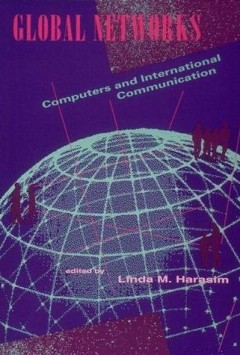
Global networks : computers and international communication
Global Networks takes up the host of issues raised by the new networking technology that now links individuals, groups, and organizations in different countries and on different continents. The twenty-one contributions focus on the implementation, application, and impact of computer-mediated communication in a global context. Previously limited to scientific research, global networks now have a…
- Edition
- -
- ISBN/ISSN
- 0585020361
- Collation
- 1 online resource (xii, 411 pages) :illustrations
- Series Title
- -
- Call Number
- 005 GLO
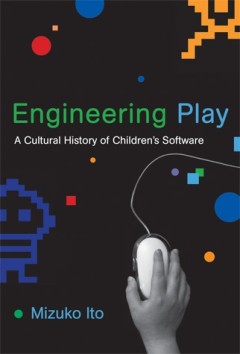
Engineering Play: A Cultural History of Children's Software
How the influential industry that produced such popular games as Oregon Trail and KidPix emerged from experimental efforts to use computers as tools in child-centered learning.OCLC-licensed vendor bibliographic record.
- Edition
- -
- ISBN/ISSN
- 9780262258913
- Collation
- 1 online resource (xii, 234 pages) :illustrations.
- Series Title
- -
- Call Number
- -
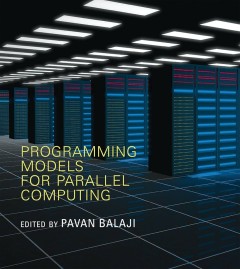
Programming Models for Parallel Computing
"With the coming of the parallel computing era, computer scientists have turned their attention to designing programming models that are suited for high-performance parallel computing and supercomputing systems. Programming parallel systems is complicated by the fact that multiple processing units are simultaneously computing and moving data. This book offers an overview of some of the most pro…
- Edition
- -
- ISBN/ISSN
- 0262528819
- Collation
- 1 online resource.
- Series Title
- -
- Call Number
- -
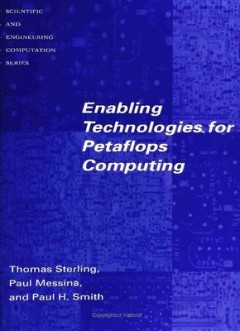
Enabling Technologies for Petaflops Computing
Building a computer ten times more powerful than all the networked computing capability in the United States is the subject of this book by leading figures in the high performance computing community. It summarizes the near-term initiatives, including the technical and policy agendas for what could be a twenty-year effort to build a petaFLOP scale computer. (A FLOP -- Floating Point OPeration -…
- Edition
- -
- ISBN/ISSN
- 9780262287074
- Collation
- 1 online resource (x, 178, [1] pages) :illustrations.
- Series Title
- -
- Call Number
- -
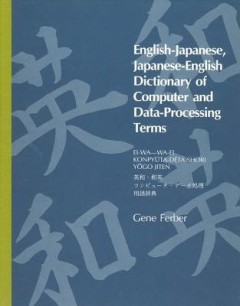
English-Japanese, Japanese-English Dictionary of Computer and Data-Processing…
Parallel title in Japanese vernacular and romanized form.Winner, 1989, category of Computer Science, Professional/Scholarly Publishing Annual Awards Competition presented by the Association of American Publishers, Inc. With 10,000 entries, this dictionary is the most complete of its kind. It is a major contribution to more accurate sharing of scientific and technological information. The dictio…
- Edition
- -
- ISBN/ISSN
- 9780262290852
- Collation
- 1 online resource (470 pages)
- Series Title
- -
- Call Number
- -
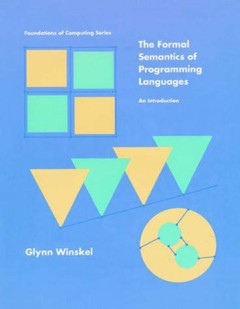
The Formal Semantics of Programming Languages: An Introduction
"The Formal Semantics of Programming Languages provides the basic mathematical techniques necessary for those who are beginning a study of the semantics and logics of programming languages. These techniques will allow students to invent, formalize, and justify rules with which to reason about a variety of programming languages. Although the treatment is elementary, several of the topics covered…
- Edition
- -
- ISBN/ISSN
- 9780262291453
- Collation
- 1 online resource (xviii, 361 pages) :illustrations.
- Series Title
- -
- Call Number
- -
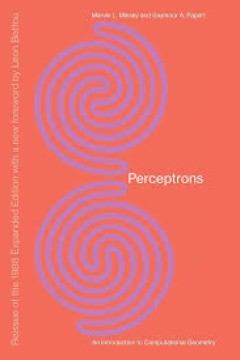
Perceptrons :an introduction to computational geometry
"Reissue of the 1988 Expanded Edition with a new foreword by L?eon Bottou."The first systematic study of parallelism in computation by two pioneers in the field.Reissue of the 1988 Expanded Edition with a new foreword by Leon BottouIn 1969, ten years after the discovery of the perceptron--which showed that a machine could be taught to perform certain tasks using examples--Marvin Minsky and Seym…
- Edition
- [2017 edition].
- ISBN/ISSN
- 9780262343930
- Collation
- 1 online resource (xxiii, 292 pages) :illustrations
- Series Title
- -
- Call Number
- -
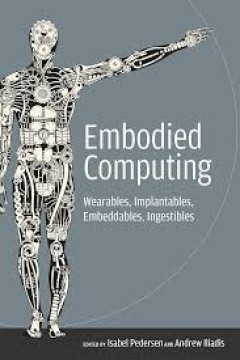
Embodied computing :wearables, implantables, embeddables, ingestibles
"Embodied technologies such as wearable tracking bracelets, ingestible sensors, embeddable prosthetics, and implantable microchips all stand to redefine the human experience and what it means to speak of technology and the body. No longer the speculative stuff of science fiction, embodied technologies have arrived and are being developed by a variety of industries at an alarming rate. Embodied …
- Edition
- -
- ISBN/ISSN
- 0262357798
- Collation
- 1 online resource.
- Series Title
- -
- Call Number
- -
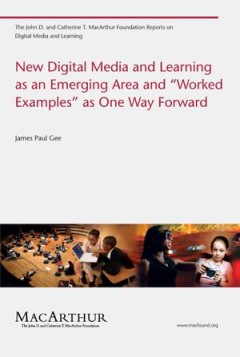
New Digital Media and Learning as an Emerging Area and "Worked Examples" as O…
A proposal to move the academic area of digital media and learning toward more coherence. In this report, noted scholar James Paul Gee discusses the evolution of digital media and learning (DMAL) from its infancy as an “academic area” into a more organized field or coherent discipline. Distinguishing among academic areas, fields, disciplinary specializations, and thematic disciplines, Gee d…
- Edition
- -
- ISBN/ISSN
- 9780262513692
- Collation
- 92 halaman
- Series Title
- -
- Call Number
- 302 GEE n
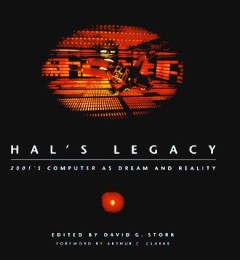
HAL's legacy : 2001's computer as dream and reality
I became operational... in Urbana, Illinois, on January 12, 1997. Inspired by HAL's self-proclaimed birth date, HAL's Legacy reflects upon science fiction's most famous computer and explores the relationship between science fantasy and technological fact. The informative, nontechnical chapters written especially for this book describe many of the areas of computer science critical to the des…
- Edition
- -
- ISBN/ISSN
- 9780262284455
- Collation
- 1 online resource (xxi, 384 pages) : illustrations (some color)
- Series Title
- -
- Call Number
- 001 HAL
 Computer Science, Information & General Works
Computer Science, Information & General Works  Philosophy & Psychology
Philosophy & Psychology  Religion
Religion  Social Sciences
Social Sciences  Language
Language  Pure Science
Pure Science  Applied Sciences
Applied Sciences  Art & Recreation
Art & Recreation  Literature
Literature  History & Geography
History & Geography